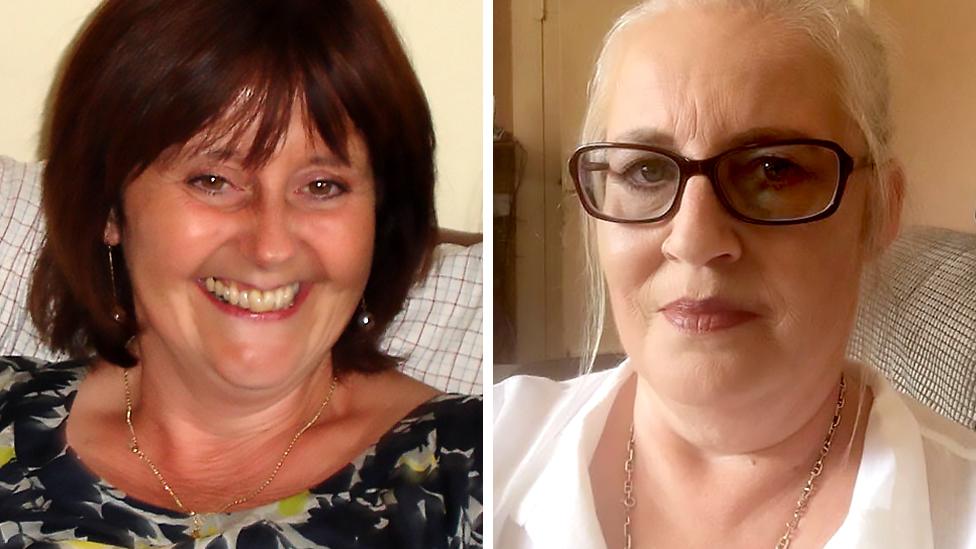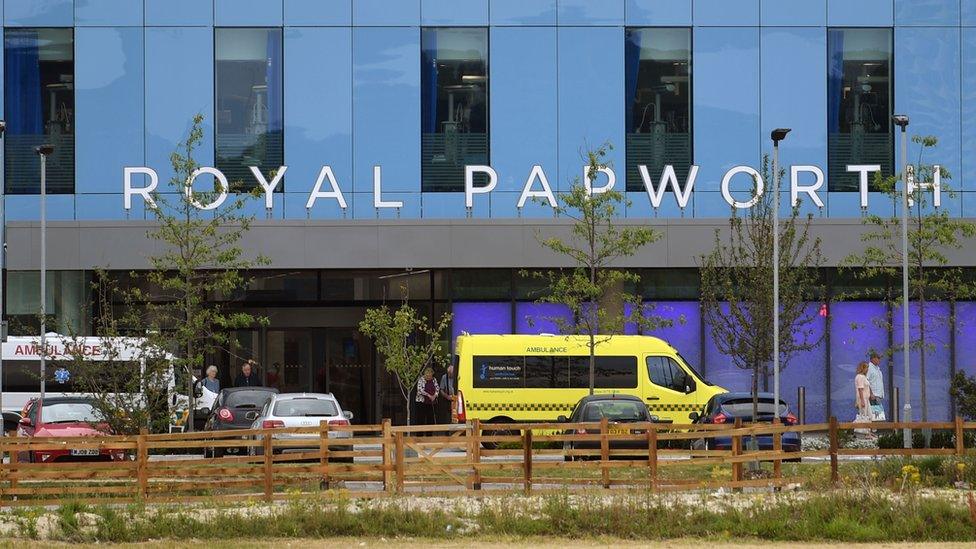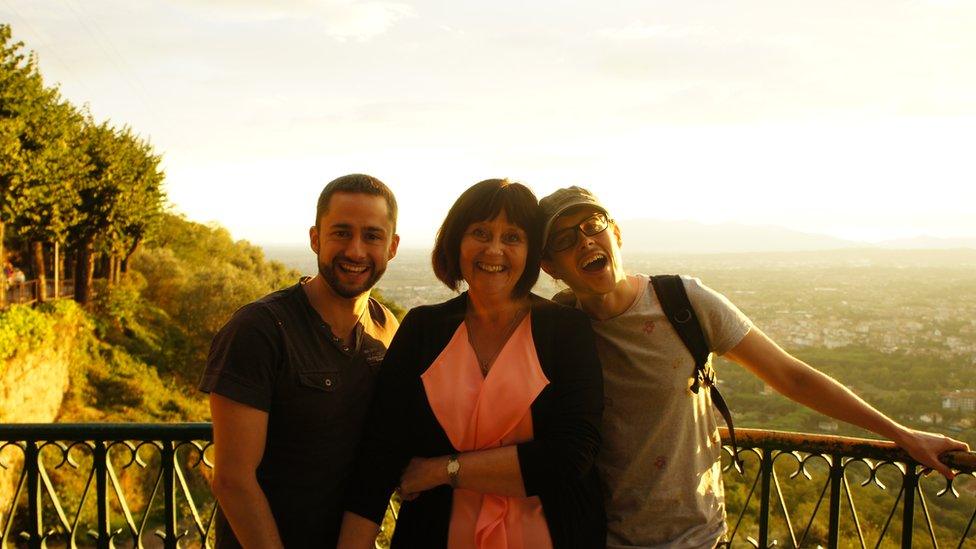Papworth Hospital: Contaminated water led to women's deaths - inquest
- Published

Anne Martinez and Karen Starling died the year after undergoing double lung transplants
Two women died after developing an infection likely to have come from a hospital's contaminated water supply, an inquest heard.
Anne Martinez, 65, and Karen Starling, 54, died a year after undergoing double lung transplants at the new Papworth Hospital in Cambridge in 2019.
An inquest heard both contracted mycobacterium abscessus.
Coroner Keith Morton said this bacteria was "of particular concern to lung transplant patients".
The inquest, which began at Peterborough Town Hall on Thursday, heard an internal investigation concluded a contaminated water supply was the likely source of the infection.
It was later found 21 patients had contracted mycobacterium abscessus in the months after the hospital opened in 2019.
Mr Morton, assistant coroner for Cambridgeshire and Peterborough, said the deaths of Mrs Starling, from Ipswich, and Mrs Martinez, from Borehamwood, Hertfordshire, were caused in part by the infection and its treatment.
"Mycobacterium abscessus is a group of rapidly growing bacteria, which is of particular concern to lung transplant patients and others whose immune system is suppressed," he said.

The new Royal Papworth Hospital opened in Cambridge in 2019 after moving from nearby Papworth Everard
In a statement, Mrs Starling's widower, Derek Starling, said his wife, who suffered with chronic obstructive pulmonary disease, was recommended for a lung transplant in 2014.
"In May 2019 we received a call from Royal Papworth saying she could receive the surgery," he said.
"There was a dramatic change in lifestyle after the operation. She was able to walk around the shops and stopped using the stairlift."
However, by September Mrs Starling began to develop shortness of breath.
"The consultant at Papworth told us she'd caught an infection and seemed to suggest it had come from the water, however no treatment was started at this stage," Mr Starling said.
In January 2020, Mrs Starling was readmitted to Royal Papworth and was put on an intravenous course of the antibiotic tigecycline, but her health deteriorated and she died in February.
In a statement read to the court, the family of Anne Martinez - who died in December 2020 - said the quality of her treatment at Royal Papworth ranged from "outstandingly good to very poor".

Anne Martinez died in December 2020, an inquest heard
Mrs Martinez received a lung transplant at the hospital in July 2019 and shortly afterwards contracted mycobacterium abscessus.
In the inquest heard the transplant team concluded her best treatment was the antibiotic bedaquiline, but the hospital initially refused to sanction its use.
"Having given her the infection, the hospital should have given her everything to recover rather than wait nine months, when it was too late to be effective," the family said.
"With failing health, she was forced to fight constantly to get treatment."
Giving evidence at the hearing, Dr Jasvir Parmar, who oversaw both women's transplants, said "bedaquiline was substantially more expensive than other therapies".
He acknowledged there was "quite a delay" in administering it to Mrs Martinez.
"It's not the way any of us would like to conduct things, but a lot of things fed into that, including the issues around the pandemic".
Dr Parma said they stopped using tigecyline on transplant patients following the death of Mrs Starling.
"Once you have this organism in your bloodstream, it's very hard to clear it and you're essentially firefighting."
"We treated in good faith what we had in front of us," he said.
The inquest is expected to last seven days.

Find BBC News: East of England on Facebook, external, Instagram, external and Twitter, external. If you have a story suggestion email eastofenglandnews@bbc.co.uk, external